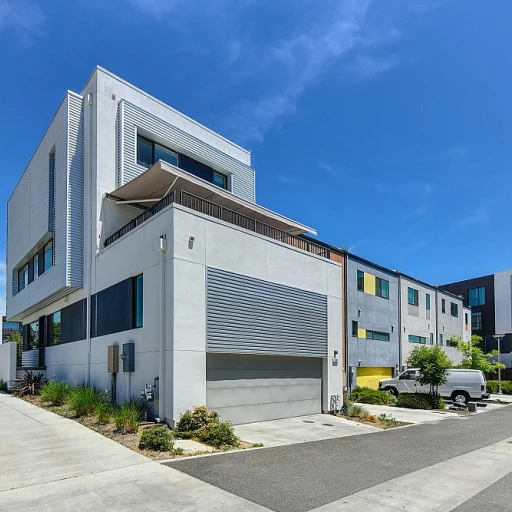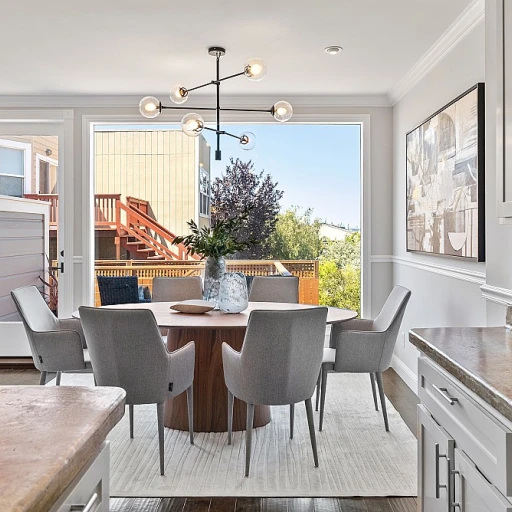Understanding the Airbnb Market
The Emerging and Profitable Airbnb Landscape
The rise of Airbnb properties has transformed how individuals perceive vacation rentals, creating a lucrative platform for property owners in exclusive estates. Understanding the dynamics of this market is crucial for potential investors aiming to diversify their income portfolio with short-term rentals.
Airbnb has effectively capitalized on the growing demand for unique and flexible accommodation options. This shift has prompted exclusive estate owners to assess the viability of leveraging their properties for short-term rentals, with a specific focus on attaining high rental income and adapting to varying demand cycles. Coastal destinations, such as those offering beach properties, have particularly benefitted, alongside bustling urban markets like Houston and Austin.
Trends and Considerations in Property Rental
Exclusive estate owners are exploring avenues to maximize returns on their Airbnb rental investments. With an emphasis on assessing property location, rental income potential, and occupancy rates, investors can make informed decisions to sustain profitable operations. Properties that offer a unique experience, whether through luxury amenities or outstanding locations, tend to command higher rental income and can contribute significantly to an investor's Airbnb portfolio.
Furthermore, economic factors such as property prices and real estate market trends play a pivotal role in determining the success of an Airbnb business model. By focusing on investment properties with favorable cap rates, owners can ensure steady cash flow and long-term viability within the Airbnb and vacation rentals market.
Evaluating Potential Airbnb Properties
Assessing the Most Compelling Investment Attributes
When venturing into the world of Airbnb properties, exclusive estate owners must carefully evaluate various factors to ensure a profitable investment. The key to a lucrative Airbnb rental lies in identifying properties that not only meet market demand but also promise a steady rental income.
Potential investors should begin by analyzing the real estate market dynamics. This includes understanding property sale prices, evaluating cap rate trends, and assessing rental income potential. For exclusive estate owners, targeting vacation rentals is often advantageous. Properties near popular destinations like beaches or cultural hubs typically receive higher bookings, guaranteeing substantial short term rental gains.
Key Considerations for Selecting Prime Locations
Location is paramount in determining the success of an Airbnb investment. Areas such as Austin and Houston in the United States have shown promising growth in the Airbnb market. Single family homes with multiple beds and baths can be profitable due to their appeal to larger groups and families seeking affordable vacation rentals.
Analyzing the local MLS listings can provide insights into property availability and competition. Consider properties in proximity to tourist attractions with strong demand for short term stays, thus ensuring a consistent flow of rentals.
Financial Planning and Revenue Maximization
Once suitable Airbnb properties are identified, estate owners should forecast potential cash flow and rental income. It's crucial to set competitive rental prices aligned with market standards, but also factor in the cost of property management, maintenance, and occasional renovations to keep the property appealing to guests.
Leveraging local insights and data can lead to informed decisions, ensuring that investments yield optimum returns. Exclusive estate owners can capitalize on the burgeoning trend of short term rentals by meticulously selecting properties that promise solid income and sustainable growth within their Airbnb portfolios.
Legal and Regulatory Considerations
Critical Legal and Regulatory Insights
Navigating the legal and regulatory landscape is essential when considering adding Airbnb properties to your exclusive real estate portfolio. The rules and requirements can vary significantly depending on the location, whether you're investing in a beach property in Houston or a city center spot in Austin. Here are some crucial considerations to keep in mind:- Zoning Restrictions: Many cities in the United States have specific zoning laws that affect short-term rentals. For instance, certain zones may restrict or ban vacation rentals, limiting your options for generating rental income. Ensuring compliance with local zoning laws is the first step before making any purchase.
- Licensing Requirements: Cities often require specific licenses or permits for short-term rental operations. This is a key component in maintaining a legitimate Airbnb rental. Be prepared for fees associated with obtaining and renewing these licenses.
- Tax Implications: Hosting on Airbnb can impact your tax situation. Income from Airbnb rentals is typically subject to federal and local taxes. It's important to consult with a real estate accountant, as they can help navigate tax requirements and suggest efficient strategies to manage your property portfolio's financial aspects. To delve deeper into this critical support role, explore the integral role of a real estate accountant in exclusive estates.
- Homeowners Association (HOA) Rules: If your property is part of an HOA, you'll need to check whether they permit short-term rentals. HOAs can establish rules or outright bans on term rental activities, so understanding these parameters is necessary before moving forward.
- Insurance and Liability: Operating an Airbnb property also requires specific types of insurance coverages to protect against guest injuries or property damage. Understanding and obtaining the right insurance is crucial to mitigate risks.
Maximizing Returns on Airbnb Investments
Boosting Profits with Strategic Airbnb Investments
To optimize returns on Airbnb rental investments, exclusive estate owners need to prioritize several key strategies. Understanding what makes a property attractive to renters is fundamental. Consider the geographic location: properties near vacation hotspots, such as beach areas, or in urban hubs like Houston or Austin, often see higher short-term rental demand. The ability to offer unique experiences can set you apart from other rental income properties on the market.
Another crucial factor is the physical attributes of the property. Properties with a higher number of beds and baths can accommodate larger groups, which is often desirable for Airbnb guests. Evaluating the potential cap rate and cash flow will provide insights into the profitability of these investment properties. Keep in mind that single-family homes might offer a distinctive charm, especially in upscale neighborhoods.
Engage in comprehensive market research, utilizing tools such as the MLS to gauge the current price trends and rental rates in your area. Analyzing the pricing strategies of similar properties for sale or rent can also help in setting competitive Airbnb rates that attract more bookings while ensuring profitable returns.
Consider enhancing the property's appeal with modern amenities and smart home features that today's guests seek. Ultimately, maintaining high standards in terms of cleanliness and hospitality service can earn favorable reviews, positively impacting your Airbnb portfolio. Continuously assessing rental incomes against the operational and maintenance costs is essential for long-term success, ensuring that short-term rentals remain a lucrative venture.
Challenges Faced by Exclusive Estate Owners
Balancing Prestige with Practicality
Exclusive estate owners face a unique set of challenges when entering the Airbnb market. While the allure of earning additional rental income from vacation rentals is compelling, the path is not without obstacles. One major concern is maintaining the prestige and opulence associated with exclusive properties. Airbnb rentals, particularly those situated in desirable locations such as Austin, Houston, and beachside locales, often attract a diverse range of short term tenants. Catering to these guests while maintaining the distinctive charm and amenities that classify a property as exclusive can be difficult. Owners must strike a balance between offering a memorable guest experience and preserving the integrity and value of their real estate assets.Navigating Complex Rentals Dynamics
The volatility of rental income from short term rentals is another challenge. Exclusive properties typically cater to high net-worth individuals, meaning the rate of occupancy can be unpredictable. Seasonal fluctuations, market saturation in certain areas, and economic downturns can all impact the rental income stream. Exclusive estate owners must remain vigilant and adaptable to emerging trends in real estate and vacation rental habits. Understanding the dynamics of cap rate, investment properties, and the broader market for Airbnb properties is essential in crafting effective strategies.Managing Operational Logistics
In addition to financial challenges, the operational aspect of managing Airbnb rentals can be daunting. Exclusive estates are often substantial in size, comprising numerous beds and baths, requiring dedicated personnel for daily operations. This demand for high-level management can be costly, with the need to employ staff for cleaning, maintenance, and guest services consistently. Owners must consider either personally overseeing these operations or hiring a dedicated property management service that specializes in short term rentals for luxury estates. The delicate balance of maintaining cash flow with operating costs can also add layers of complexity to such investments. In essence, while the Airbnb market presents unique opportunities for exclusive estate owners to generate substantial rental income, it requires careful planning and execution to navigate the market's challenges successfully.Future Trends in the Airbnb and Exclusive Estate Market
The Evolving Landscape of Airbnb and Exclusive Estates
As we delve into the future of Airbnb and exclusive estates, it's clear that the real estate market is ever-evolving, with trends shifting rapidly in response to technological advancements and changing consumer preferences. Owners of exclusive properties stand on the brink of substantial opportunities within the Airbnb market, provided they stay abreast of these emerging trends.- Increased Demand for Short-Term Rentals: The appetite for vacation rentals, particularly unique and high-end properties, continues to rise. Travelers are increasingly seeking distinctive experiences, often prioritizing short-term stays for flexibility and variety.
- Technology-Driven Enhancements: Smart home technologies are becoming a must-have for properties in the Airbnb portfolio, enhancing guest experiences and operational efficiency. Implementing these technologies can significantly boost the rental price and improve the cap rate.
- Shifts in Location Preferences: While urban areas like Houston and Austin remain popular for Airbnb properties, there's a growing trend towards vacation rentals in beach destinations. The diversification of locations may influence the demand, impacting both rental income and property sales.
- Sustainability Focus: There is an increasing trend towards eco-friendly investments. Estates that prioritize sustainable practices not only appeal to environmentally conscious travelers but also stand to benefit from potential tax incentives.
- Investment in Amenities: Offering luxuries like high-end beds, baths, and unique features are increasingly critical. Properties with distinctive amenities tend to command higher rental rates and attract more bookings.
- Regulatory Adaptations: As regulations become more stringent, staying informed and compliant will be crucial for maintaining a successful Airbnb rental income stream. Adapting quickly to changes in policy can make a significant difference in maximizing returns.




-large-teaser.webp)






-large-teaser.webp)
